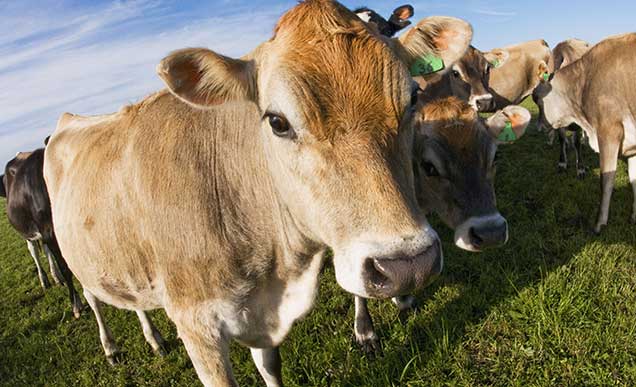NZ government blocks £56m Chinese land deal
 © Design Pics Inc/REX/Shutterstock
© Design Pics Inc/REX/Shutterstock The New Zealand government has refused to allow a Chinese firm to purchase a 14,000ha livestock farm for NZ$88m (£56m) because it was not in the national interest.
Pure 100 Farm, a subsidiary of China-based Shanghai Pengxin, applied to the Overseas Investment Office (OIO) last year to buy the 13,800ha cattle and sheep farm near Taupo for $88m (£56m).
Minsters rejected the sale of Lochinver Farm in North Island to Shanghai Pengxin, saying they were not convinced it would benefit New Zealand.
See also: Australia tightens controls on foreign farmland ownership
NZ land information minister Louise Upston said: “While we recognise and support the importance of overseas investment, the Overseas Investment Act states it is a privilege for overseas people to own sensitive New Zealand assets and therefore requires such investments to meet statutory criteria for consent.
“After detailed and careful individual consideration, we are not satisfied there will be, or is likely to be, a substantial benefit to New Zealand – a key requirement for applications of sensitive land of this size.”
While the OIO said the question of whether the benefits of the potential investment to New Zealand are or could be substantial and identifiable was finely balanced, it recommended approving the application.
“We agreed parts of the proposed investment could benefit New Zealand, but in our judgement on the overall balance of evidence, the benefits are not likely to be substantial and identifiable,” added Ms Upston.
“This proposed sale didn’t pass a test we are required to exercise ministerial judgement on.”
In a statement, Shanghai Pengxin, which already owns 29 farms in New Zealand, said it was “surprised and extremely disappointed” with the decision and would be considering further options.
Lochinver Farm owner Stevenson Group said it was “disappointed” by the outcome.
Its chief executive, Mark Franklin, said: “We are concerned that this process has taken 14 month,s with the end result that we have been deprived of our right to sell to the highest-value bidder for some vague national benefit that has not been defined.
“We are unclear as to why this property is different to the many others that have been approved through the Overseas Investment Office process, given the obvious benefits both to the farm and to Stevenson Group.
“Beyond this transaction, this decision will have significant economic ramifications for the New Zealand economy, particularly in the areas of international relations, uncertainty of foreign investment and rural land prices.”
Critics said the move would send mixed signals to potential overseas investors that New Zealand was not open for business.
Dr William Rolleston, president of Federated Farmers of New Zealand, a member-based organisation that represents the interests of farmers, said: “New Zealand absolutely needs foreign investment, but there has to be clearly demonstrated benefit to the local and national economy.
“This was not proven here and we believe the Lochinver decision reinforces the importance of changes made to the Overseas Investment Office rules over recent years.
“What we need is for foreign investors and those involved in the sale of rural land to work harder to find ways to demonstrate economic benefit, both on the property they are targeting and for the broader industry.”
In December 2010, the government tightened the rules around foreign ownership by way of an “economic interests” factor in the OIO’s consideration.
This allows ministers to consider whether New Zealand’s economic interests are adequately “safeguarded and promoted” in the case of land aggregation or vertical integration.
